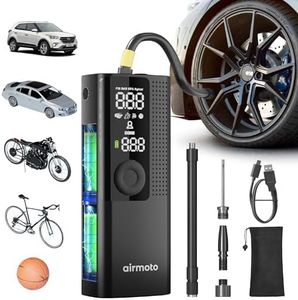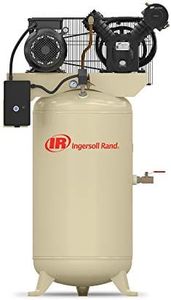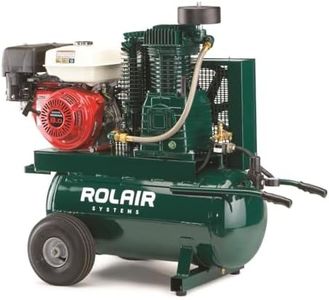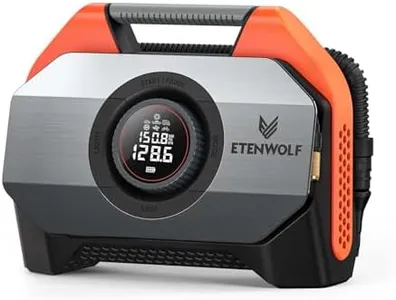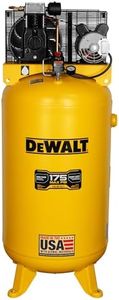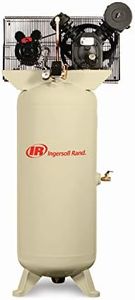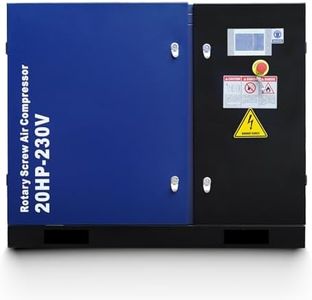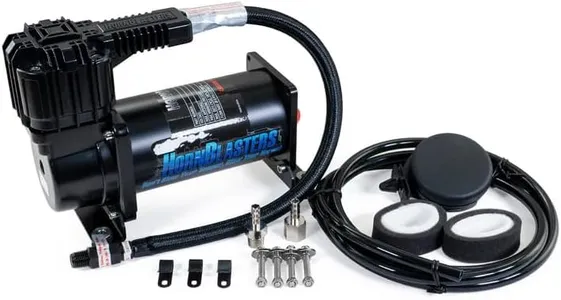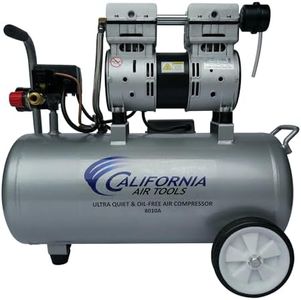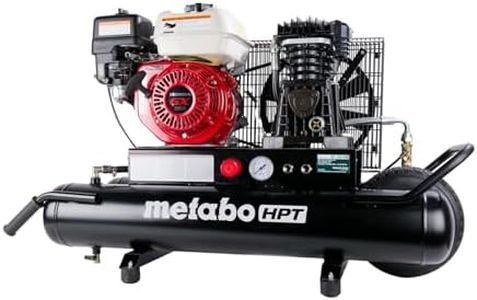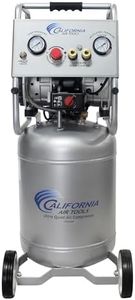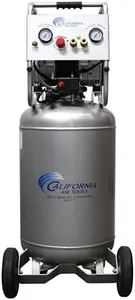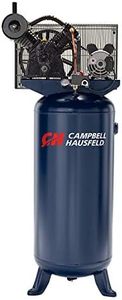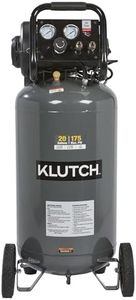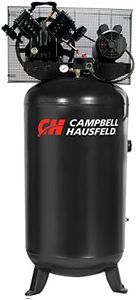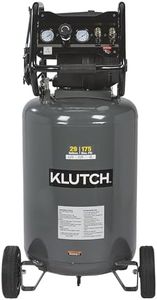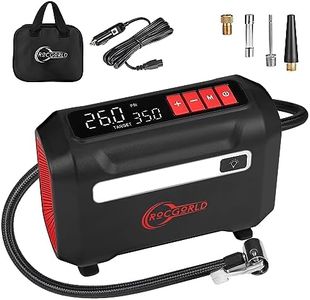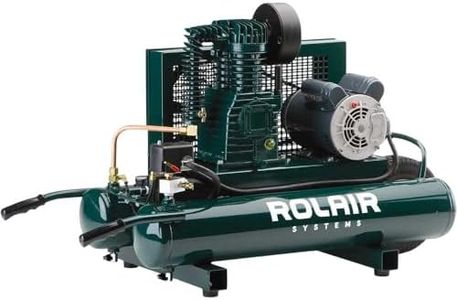10 Best Air Compressors 2026 in the United States
Our technology thoroughly searches through the online shopping world, reviewing hundreds of sites. We then process and analyze this information, updating in real-time to bring you the latest top-rated products. This way, you always get the best and most current options available.

Our Top Picks
Winner
Ingersoll Rand - Air Compressor 7.5HP 2 Stage (2475N7.5) 45465408
The Ingersoll Rand 7.5HP 2-Stage Air Compressor (2475N7.5) is a robust choice tailored for industrial applications, thanks to its durable cast iron construction and impressive long-life pump designed for over 15,000 hours of usage. With a maximum operating pressure of 175 PSI and an 80-gallon tank, it delivers substantial power and efficiency, making it suitable for demanding tasks like automotive service or heavy machinery operation.
One of the standout features of this compressor is its 100% continuous duty cycle, which allows for prolonged usage without downtime. This is especially beneficial for users who need a reliable air supply for extended periods. Additionally, the compressor operates on 230 volts and uses a corded electric power source, which is common in industrial settings.
Maintenance is made easier with an easy-to-service design that includes individually cast cylinders and a simplified crankshaft setup. Users will appreciate the All Season Select synthetic lubricant, which increases efficiency and extends service intervals to 2,000 hours, significantly reducing maintenance frequency compared to conventional lubricants. The noise level of 85 dB is relatively high, which could be a concern for those working in confined spaces or noise-sensitive environments. Proper hearing protection may be necessary during operation. Also, while the size and weight of the compressor lend to its stability and durability, it may not be the most portable option for users who require frequent relocation.
Rolair 9 Hp Honda, 20.1 Cfm@90Psi, 20 Gallon Compressor
Most important from
4 reviews
The Rolair 9 Hp Honda air compressor is designed for heavy-duty industrial use, featuring a robust 9 horsepower gasoline engine. It delivers a substantial airflow of 20.1 cubic feet per minute (CFM) at 90 PSI, allowing it to power multiple air tools simultaneously without losing efficiency. Its 20-gallon tank provides a good reserve of compressed air, reducing the frequency of tank refills during demanding tasks. An automatic idle-down feature helps save fuel when the compressor is not actively in use.
Constructed with durable materials and fitted with heavy-duty tires, the compressor offers some mobility despite its large size and weight of 320 pounds, although it is not ideal for frequent movement. Being gasoline-powered enables use in locations without electricity but comes with increased noise and the need for fuel maintenance. This makes it well-suited for industrial or heavy workshop environments requiring power and continuous airflow, while it may be less appropriate for casual or home use due to its bulk and gas engine.
Most important from
4 reviews
ETENWOLF VORTEX S6 Tire Inflator Portable Air Compressor for Heavy-duty Vehicle, Cordless Air Pump for Car & Inflatables with 19200 mAh Battery, 100% Duty Cycle & Dual Cylinder Bike Pump, Vivid Orange
Most important from
2039 reviews
The ETENWOLF VORTEX S6 is a strong cordless air compressor designed mainly for heavy-duty vehicles like trucks and pickups, but it also works well for regular cars, bikes, and inflatables. It delivers a high maximum pressure of 160 PSI and an airflow of 1.5 CFM, enabling quick inflation—for instance, a 31-inch tire can be filled from 30 to 35 PSI in about a minute. The portable unit runs on a powerful 19200 mAh lithium battery that can inflate multiple tires (up to 18 full charges for a typical truck tire), making it ideal for on-the-go use without needing a power outlet.
It features a 100% duty cycle and a dual-cylinder system with cooling, allowing you to inflate several tires back-to-back without waiting for the device to cool down. The VORTEX S6 automatically stops inflating when the target pressure is reached, reducing the risk of overinflation, and offers seven preset modes along with memory for preset pressures. A bright 1000-lumen LED light assists in dark conditions, adding convenience for nighttime or emergency use.
The device weighs 6 pounds, which is somewhat heavy compared to smaller portable inflators, and operates at 78 decibels, a noise level typical for this power range. While it does not have a large air tank due to its battery-powered cordless design, it focuses on fast, repeated inflation instead of large volume storage. This makes it a reliable and quick inflator choice for users needing portability and power for big vehicles and various inflatables, especially where power outlets are unavailable.
